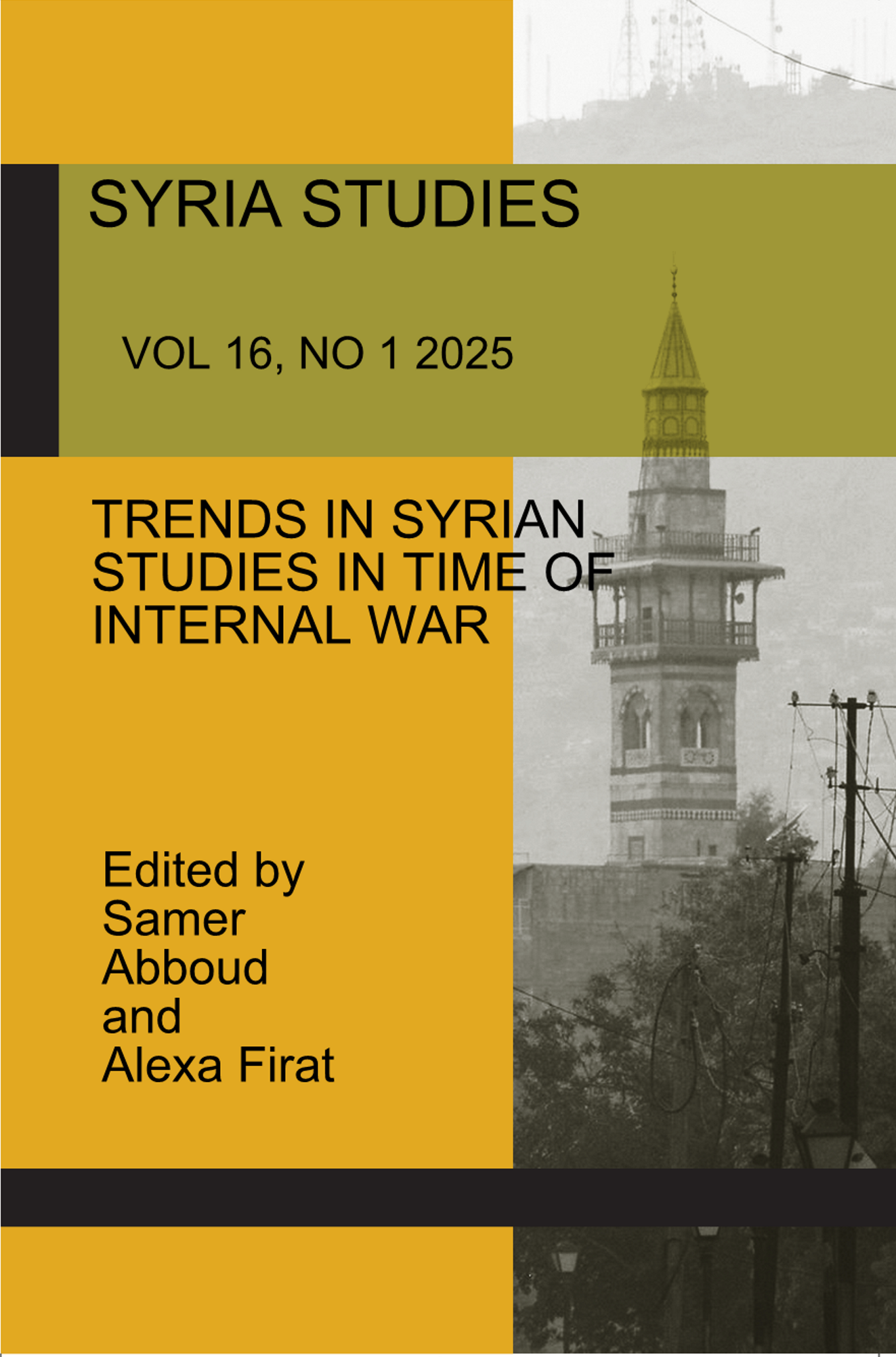Introduction Trends in Syria Studies in times of internal war
Main Article Content
Abstract
This issue, Vol 16, No 1, of Syria Studies explores the impact of Syria’s internal war on research and analysis of Syria in the more the more than decade beginning soon after the outbreak of the Syrian uprising. Contributors write from the perspective of their own research and positionality as researchers from/of Syria. They explore such questions as: How do we conduct research amidst protracted war? What constitutes ‘the field’ when access to the country is virtually impossible for many of us? How are our research questions and methods shaped by the current state of protracted war? Abboud argues that the post-2011 period represents a new, fourth period that will shape Syrian state formation. Ghada Atrash’s essay forefronts how “epistemic activism” can disrupt knowledge production. Rula Jabbour examines the utility of Strategic Studies for iunderstanding the Syrian conflict. Sumaya Malas considers how the “post-conflict” framework discourages researchers from pursuing projects until conflicts are perceived to be over. Rimun Murad assesses the emergence of the war novel as a consequence of the conflict. Christa Salamandra’s reflection on ethnography on understanding Damascene elites. Uğur Ümit Üngör asks how the Syrian conflict has affected the conduct of wider international politics. Fadi Skeiker personal testimony centres on theatre as a practice of citizenship and social justice. Alexa Firat examines visual narratives of the conflict.
Article Details

This work is licensed under a Creative Commons Attribution 4.0 International License.
Authors who publish with this journal agree to the following terms:- Authors retain copyright and grant the journal right of first publication with the work simultaneously licensed under a Creative Commons Attribution License that allows others to share the work with an acknowledgement of the work's authorship and initial publication in this journal.
- Authors are able to enter into separate, additional contractual arrangements for the non-exclusive distribution of the journal's published version of the work (e.g., post it to an institutional repository or publish it in a book), with an acknowledgement of its initial publication in this journal.
- Authors are permitted and encouraged to post their work online (e.g., in institutional repositories or on their website) prior to and during the submission process, as it can lead to productive exchanges, as well as earlier and greater citation of published work (See The Effect of Open Access).
